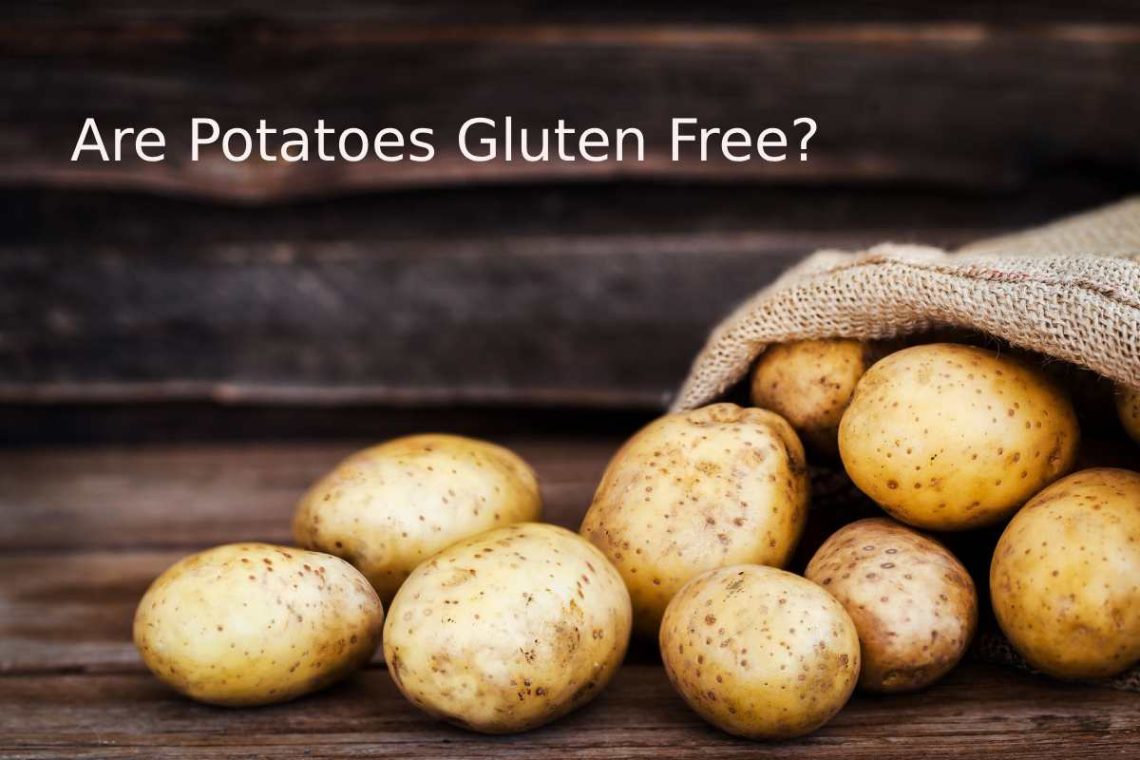Are potatoes gluten free? Can celiacs eat potatoes? Can celiacs eat French fries? Here, we explain everything about potatoes in the celiac diet. When celiac disease is diagnosed, a long road begins. A search begins for foods like potatoes that can replace those that contain gluten.
The answer is yes. Potatoes are gluten-free. Potatoes are, without a doubt, an excellent option for celiacs. In addition, potato flour is extracted, which is used to prepare many nutritious and exquisite dishes!
In this article, we will delve into the universe of the potato or, if you like it more, potato!
Do cooked potatoes have gluten?
Grown at home or bought at the market, fresh potatoes are baked, boiled, or fried and used in many recipes: mashed, pancakes, dumplings, croquettes, soups, salads, or gratins, among many—other preparation modalities.
However, global potato consumption is shifting from fresh produce to industrial food products with added value. One of the main items in this category is unattractively named frozen potatoes. Still, it comprises most French fries served in restaurants and fast food chains worldwide.
Another industrial product is crispy potato flakes, the undisputed king of snacks in many developed countries. Made with thin potato chips fried in plenty of oil or baked in the oven, they come in various flavors, from simply salty to “gourmet” varieties with a meaty or spicy taste. Some varieties of flakes are produced with dehydrated potato dough.
Dehydrated potato flakes and granulated potatoes are obtained by drying the cooked and ground potatoes until a 5% to 8% moisture level is achieved. These flakes are used to make mashed potatoes sold in boxes, as an ingredient to prepare snacks, and even as food aid: the United States has distributed potato flakes as international aid to more than 600,000 people.
Can celiacs eat French fries?
As we have mentioned, potatoes do not have gluten, and therefore French fries do not have gluten either if they have simply been peeled, cut and fried in oil. The problem could be if they are mixed with wheat flour or when cutting them, and kitchen utensils that have not been appropriately cleaned are used, which could generate cross-contamination.
Potato flour: ideal for celiacs
A dehydrated product, potato flour, is obtained from whole cooked potatoes and maintains a characteristic flavor. The food industry uses potato flour, which does not contain gluten but does contain abundant starch, to bind products made from various types of meat and add thickness to sauces and soups.
The modern industry can extract up to 96% of the starch in raw potatoes. Potato starch, a fine, flavorless powder with an “excellent texture,” provides greater viscosity than wheat or corn starches and produces more palatable products. It is used to thicken sauces and stews and as a binder for cake flours, dough, cookies, and ice cream.
Properties of potatoes
- Potatoes can be an essential staple, but a balanced diet should contain vegetables and whole-grain foods.
- Potato is a good source of calories and has some micronutrients and high protein content compared to other roots and tubers.
- Potatoes have little fat, although preparing and serving them with high-fat ingredients increases the dish’s caloric value.
- Cooking potatoes in their peel prevents them from losing their nutrients.
- Potatoes are essential in many people’s diets but must be balanced with other vegetables and whole-grain foods.
- Potatoes are versatile, high-carbohydrate foods that are famous worldwide. They can be prepared and served in various ways. Potatoes have a very high protein content compared to other roots and tubers.
- In addition, potatoes have little fat and abundant micronutrients, especially vitamin C. An average potato, 150 grams, consumed with its skin, provides almost half the daily needs of adults (100 mg).
- Potatoes contain moderate iron, but the high vitamin C content promotes its absorption. This tuber also contains vitamins B1, B3, and B6, as well as other minerals such as potassium, phosphorus, magnesium, folate, pantothenic acid, and riboflavin.
- It also contains dietary antioxidants and fiber, which can help prevent aging-related diseases. Consuming these is good for health.
Preparation of the potatoes
The nutritional value of a food containing potatoes depends on the other foods accompanying it and the preparation method. Dispelling the myth by itself, potatoes do not make you fat. The satiety produced by their consumption can help people stay in shape. However, preparing and consuming potatoes with high-fat ingredients increases the caloric value of the dish.
Since people cannot digest the starch contained in raw potatoes, they are consumed boiled (with or without skin), baked, or fried. Each preparation method affects the composition of the potato in different ways, but all reduce the fiber and protein content, which leach into the water or oil. In addition, heat destroys these nutrients, and chemical changes occur, such as oxidation.

